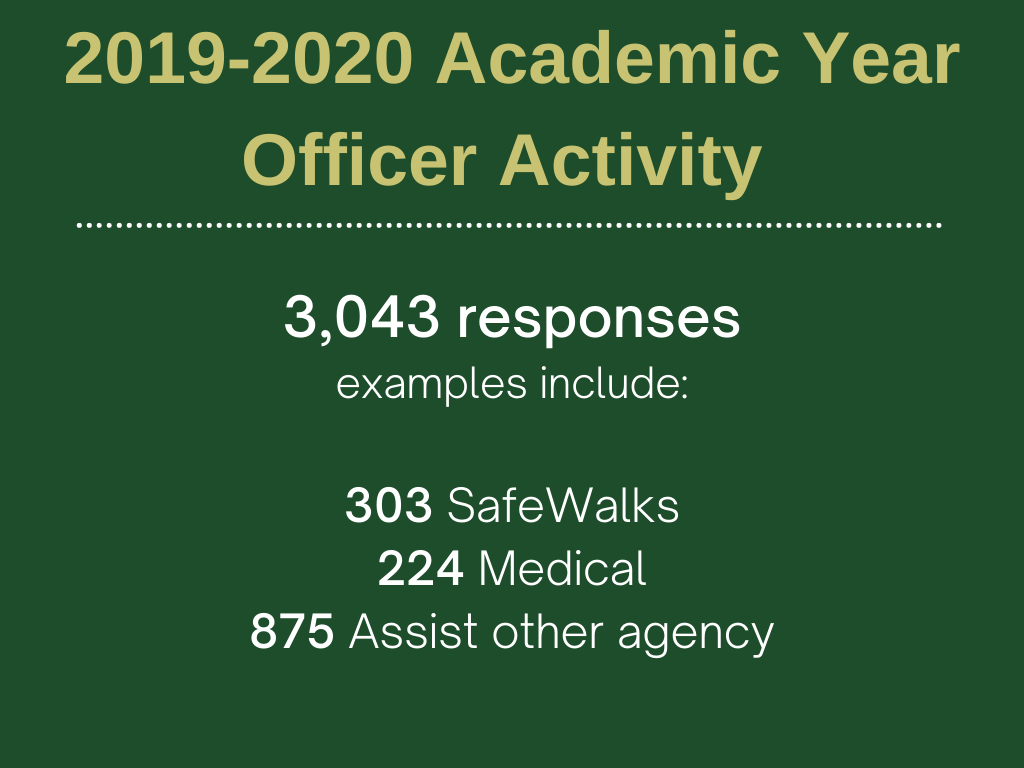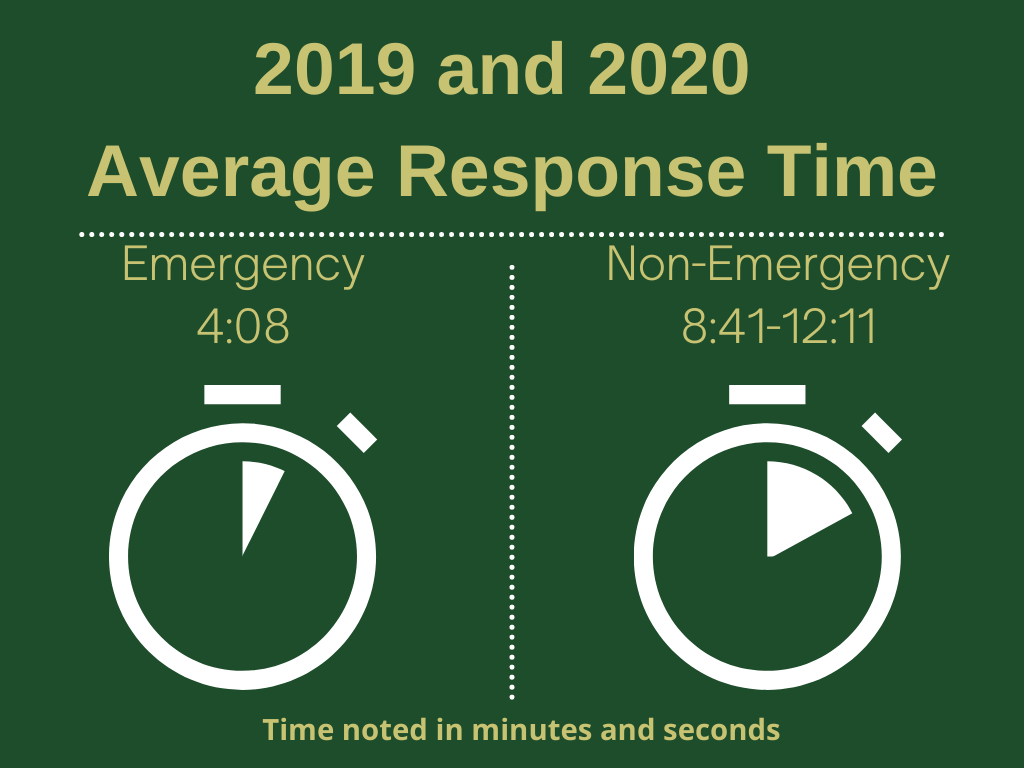CSUPD by the numbers
Colorado State University Police Department interacts with individuals from around the globe, both on and off CSU campuses. Our officers have jurisdiction over CSU property as well as in Fort Collins and Larimer County.
Two important notes about this data
- This information reflects all contacts by CSUPD. CSUPD has jurisdiction within all university grounds as well as within Fort Collins city limits and within Larimer County limits. In addition, Colorado State University has open campuses and our campuses attract thousands of visitors and individuals who pass through university grounds on their way to other destinations each week; CSUPD may interact with individuals who are not students or employees. This data reflects contacts with all individuals, and not only students, faculty and staff, to include a broad number of individuals who are not affiliated with the university in any way.
- This data counts contacts and not individuals who are contacted. This means, for example, that someone who is contacted by police three times is counted as three individual data points in the information below.
CSUPD annual officer activity
CSUPD is a small police department with a dedicated dispatch unit.
Response time
This reflects the average time it takes from the moment a dispatcher answers a call to first officer arrival.


Arrest and citation data
Information contained in the data below is available based on criteria globally tracked by police departments across the state and nation. Some of this information is obtained based on federal documentation requirements of police department when contacting with the public.
Arrest demographics for last 3 academic years
IMPORTANT NOTES:
Race and ethnicity are reported according to federal definition.
An arrest can be an on-view arrest, a warrant arrest, or a citation. The definition of these arrest types are:
On-View Arrest: A physical arrest resulting in booking at the Larimer County Jail.
Warrant Arrest: An arrest resulting from a court order, often originating from another law enforcement agency.
Citation: A criminal citation and corresponding court date have been provided to the offender before being released.
University citations
These are citations that are issued by CSUPD that are internal to the university. CSUPD refers to these as an administrative ticket.
These tickets do not route an individual through the municipal or county court system. They are handled internally, similar to how a municipal ticket would be handled in a city. These tickets are given for traffic violations as well as other low-level reasons.
In addition, these tickets can be used to refer a student to the Student Resolution Center for a violation of the Student Conduct Code. For example, a student who is younger than the legal drinking age may receive one of these tickets for alcohol consumption. These tickets are not registered through a city or county, so are only part of a student’s educational record and are not a public record.
Additional statistics
The university is required by the Jeanne Clery Disclosure of Campus Security Policy and Campus Crime Statistics Act to publish annual statistics for certain classifications of crime. Those statistics can be found at the end of the Annual Security and Fire Safety Report. In addition, our daily activities are published in a crime and fire log.
How does this information compare?
As noted above, CSUPD interacts with individuals from across the state, nation and globe who are not students, faculty or staff, and who may or may not live in Fort Collins, Larimer County or other nearby places. The university hosts thousands of official visitors from around the world each week and individuals also pass through or nearby our university grounds and CSUPD may be in contact with them. Because the university has open campuses, demographic data of individuals on campuses is impossible to collect. Some data about our university and local community that may help to draw comparisons include the links below. However, it is important to consider that this data reflects only a portion of where individuals CSUPD contacts lives. At this time, CSUPD data tracking does not capture if an individual is affiliated with CSU as a student or employee or is a visitor, or if the contact was on or off a campus. For example, a traffic contact on a street bordering a campus is captured here, even if the driver is not going to or on university grounds.
